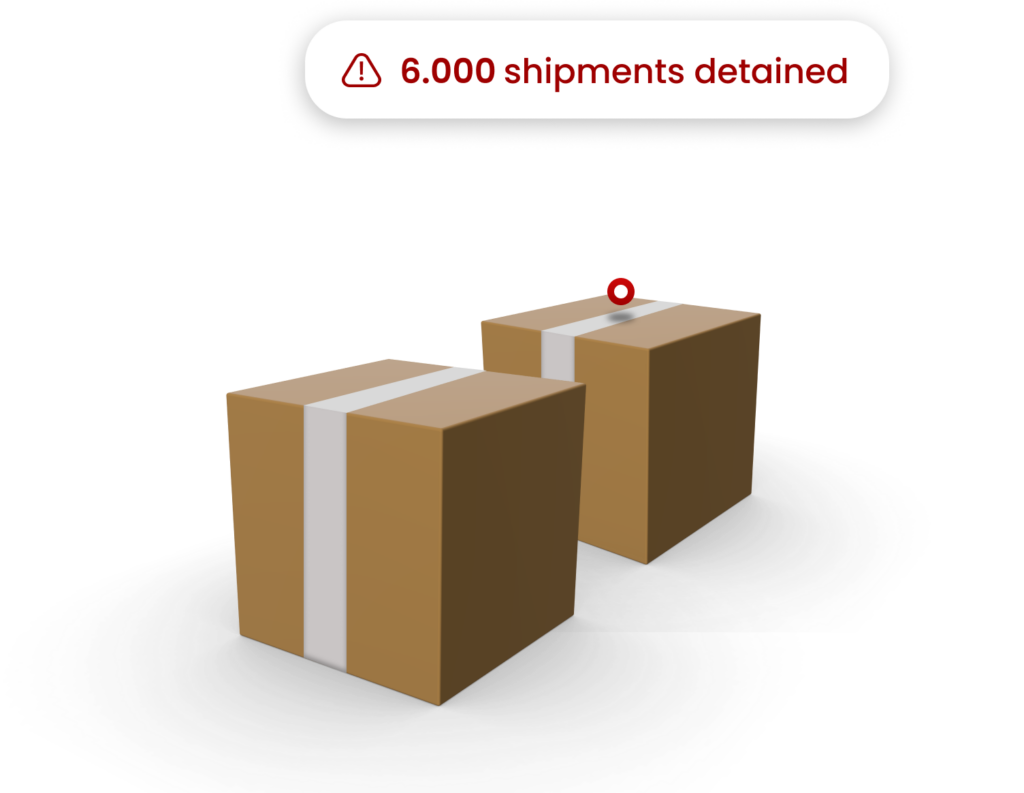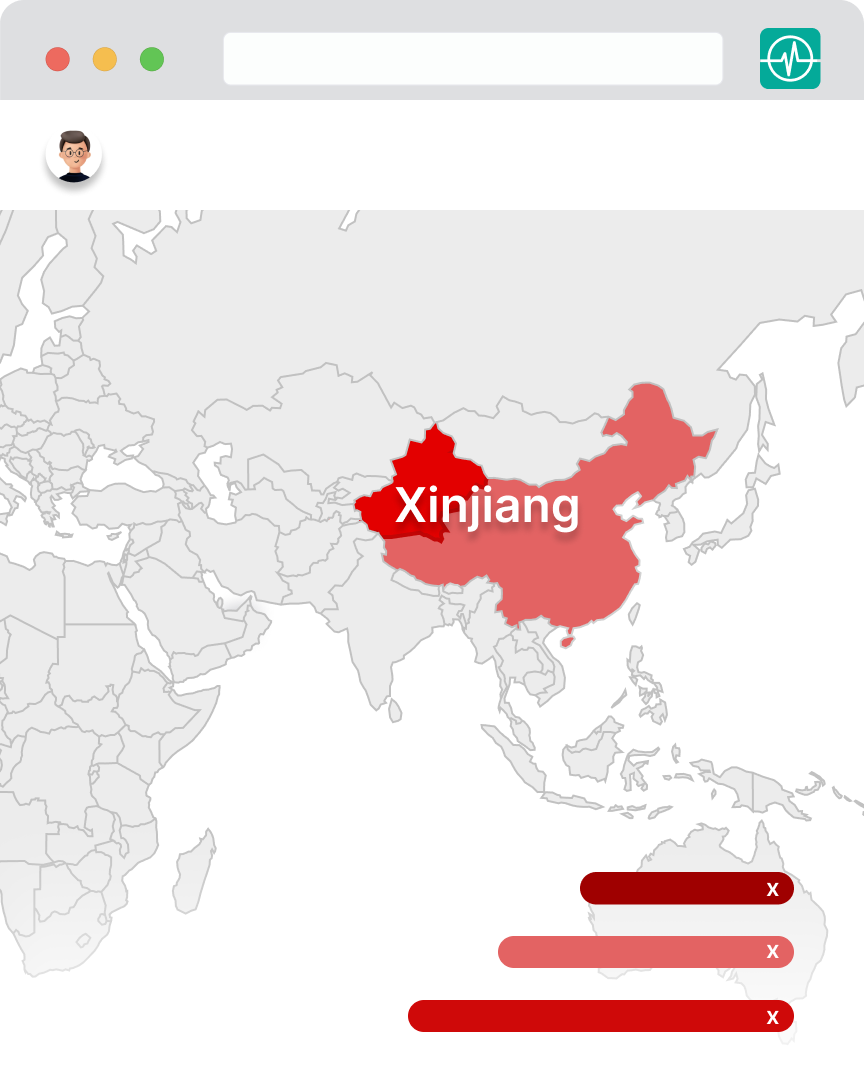In today’s globalized world, supply chain management is a complex and critical task. The Uyghur Forced Labor Prevention Act (UFLPA) has further complicated this task, requiring companies to ensure their products are not associated with forced labor in China’s Xinjiang region. This guide will explore how Prewave, a market leader in risk management, can help businesses manage UFLPA compliance more effectively.

In late December 2021, the Uyghur Forced Labor Prevention Act was signed into U.S. law, creating a presumption that goods produced in the Xinjiang Uyghur Autonomous Region (XUAR) of China, or by certain designated entities, are the product of forced labor. This presumption took effect in June 2022, and has significant implications for businesses with supply chains linked to this region or the listed entities.
In late December 2021, the Uyghur Forced Labor Prevention Act was signed into U.S. law, creating a presumption that goods produced in the Xinjiang Uyghur Autonomous Region (XUAR) of China, or by certain designated entities, are the product of forced labor. This presumption took effect in June 2022, and has significant implications for businesses with supply chains linked to this region or the listed entities.

UFLPA has significant implications for businesses. The CBP has detained over 5,600 shipments to date, amounting to a staggering $510 million. These shipments typically remain in detention for up to three months, posing substantial risks to business supply chains and potentially accruing millions in costs. Every day of delay can cost thousands of dollars, emphasizing the need for businesses to provide timely proof of origin to the CBP.
Prewave, a leading provider of supply chain risk management solutions, offers a comprehensive approach to UFLPA compliance. This approach involves identifying sanctioned Tier-N suppliers through a three-step process:
Firstly, it identifies Tier-1 and Tier-N customers of sanctioned companies using customs data, leading to Tier-N customer mapping of sanctioned suppliers.
Secondly, it matches these with the customer’s Tier-N suppliers and evaluates connections together with the customer.
Finally, it prioritizes exposed suppliers based on exposure level, potential impact on business continuity, and the status of inbound shipments.
Prewave employs a comprehensive multi-tier mapping strategy to achieve Tier-N transparency. It combines top-down and bottom-up approaches to supply chain mapping. The top-down approach begins with all Tier-1 suppliers, identifying all Tier-N suppliers using customs data.
Prewave’s bottom-up approach focuses on mapping the supply chains of UFLPA-sanctioned companies, tracing their supply chain all the way to their customers. By cross-referencing the customer’s supply chain against its list of UFLPA-sanctioned companies, Prewave can pinpoint suppliers that are directly or indirectly exposed.
Prewave’s innovative methodology elevates the conventional approach by preempting the US Customs and Border Protection (CBP) procedures. The CBP holds up shipments suspected of forced labor involvement, and companies are then required to verify that their supply chain and shipments have no connections to the incriminated Xinjiang region.
Rather than passively waiting for such an incident, Prewave adopts a proactive strategy. It supplies the evidence in advance, facilitating the rapid release of shipments. Utilizing its Tier-N data, Prewave is capable of providing on-demand validation for its client’s suppliers, adhering to the criteria specified in Section IV of the CBP Operations Guidelines for Importers.
The Uyghur Forced Labor Prevention Act (UFLPA) was established on December 23, 2021.
The Uyghur Forced Labor Prevention Act (UFLPA) is enforced by various agencies within the United States government. The Congressional-Executive Commission on China (CECC) plays a key role in overseeing the implementation and enforcement of the Act. Additionally, the Customs and the Department of Homeland Security’s Forced Labor Enforcement Task Force (FLETF) are tasked with reviewing importers’ rebuttals to the presumption of forced labor and expanding the list of entities engaged in forced labor in Xinjiang. These agencies collectively ensure that the UFLPA is effectively enforced to prevent forced labor in the Xinjiang Uyghur Autonomous Region of China.
The Uyghur restrictions in China primarily revolve around the government’s intense crackdown on the Uyghur Muslim minority in the Xinjiang region. These measures have reportedly led to more than a million Muslims being arbitrarily detained. The repression includes the establishment of ‘reeducation’ camps where Uyghurs are allegedly subjected to forced labor, among other human rights abuses. The Uyghur Forced Labor Prevention Act, passed by the U.S. government, is a response to these allegations, aiming to prevent the import of goods produced with forced labor from this region into the U.S. market.
The Uyghur Forced Labor Prevention Act (UFLPA) has significant effects on both international trade and human rights. It creates a presumption that goods from Xinjiang, China, are produced using forced labor, thus barring them from import into the United States unless proven otherwise.. This requires the U.S. administration to scrutinize a wide range of products entering the U.S., particularly those from high-risk sectors and specific companies on the UFLPA Entity List. The enforcement by the U.S. Customs and Border Protection, through Withhold Release Orders and findings, further strengthens this act. Additionally, it broadens restrictions on contracting with companies associated with the abuse of Uyghurs. The UFLPA also prompts companies to conduct human rights due diligence and supply chain tracing to ensure their products are not sourced from Xinjiang or produced with forced labor.
The Uyghur Forced Labor Prevention Act (UFLPA) identifies several high-risk products that are believed to be produced using forced labor in the Xinjiang Uyghur Autonomous Region of China. These products mainly fall within four sectors: apparel, cotton, tomatoes, and polysilicon. These sectors have been singled out due to their significant reliance on the Xinjiang region for their production. The enforcement of UFLPA primarily targets these high-risk sectors, scrutinizing shipments associated with companies suspected of exploiting forced labor or those affiliated with Xinjiang’s “poverty alleviation” program. The Act establishes a presumption that all goods from these sectors, unless proven otherwise, are products of forced labor.
UFLPA compliance is no small feat, but with the right tools and strategies, it is achievable. Prewave’s comprehensive approach to Tier-N transparency and proactive evidence generation can help businesses navigate the complexities of UFLPA compliance, ensuring business continuity and a significant competitive edge.
To find out more about Prewave’s UFLPA solution you can download our Whitepaper:

Stay ahead of supply chain disruptions with our latest research, case studies, exclusive webinars, and other value packed content.